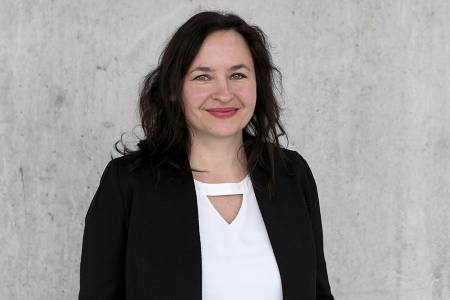Greta Thunberg and Fridays for Future have had a huge global impact, and now, at long last, sustainability has become a major talking point in society. It is becoming an increasingly important issue for customers to the extent they are willing to pay premium prices for sustainable products. But are consumption and sustainability actually compatible concepts?
You are here:
Connecta: are sustainability and consumption compatible?
As part of Connecta, the digital event organized by Swiss Post and PostFinance, around 50 experts share insights into their specialist fields. Pia Furchheim, lecturer in marketing at the Institute for Marketing Management at the ZHAW School of Management and Law, explores “sustainability in society” in her guest contribution.

How truly sustainable is sustainable consumption?
The increasing trend towards sustainable consumption and the fact we are seeing more and more sustainable product alternatives are major steps in the right direction. But there is also a risk that we as consumers will allow these to release us too easily from our personal responsibility. The big question is how sustainable is sustainable consumption really?
Don’t overlook general levels of consumption
For most of us, sustainability simply means buying sustainable products. By doing so, we often ignore our general level of consumption. Research shows the sustainability debate focuses on the time of purchase (see Prothero et al. 2011). The problem with this limited view is that sustainability remains intrinsically linked to consumption, but the general level of consumption continues to rise.
715 kg of waste per person
We still consume too much and too quickly. We replace and/or dispose of products even though they are still functional. There are many reasons for this: first you have technological developments that supposedly make previous models obsolete, then there are social changes that create new trends (such as the desire for sustainable products), and also ever shorter product life cycles and fashion trends. The result of this constant drive for consumption is reflected in the steady increase in the amount of waste that we generate. With 715 kg of waste generated per person, Switzerland is the world’s top producer of municipal waste (Federal Office for the Environment FOEN, 2021).
So what does sustainability actually mean?
People who want to live sustainably should use scarce resources consciously and carefully. It’s not just about what we buy, but also what we do with products after we buy them. For example, how long do we use a product and what happens when we are finished with it? Even if the trend towards recycling has increased in Switzerland, there is still plenty of room for improvement. We need to talk about how many valuable and scarce resources are hoarded at home in attics or cellars and are therefore removed from the production cycle. According to current figures, there are over 200 million unused old mobile phones lying around in households in Germany alone (Brandt, 2021). Their raw materials could be recycled, reducing the amount of resources being extracted from the earth with catastrophic environmental consequences.
Repair, reuse, recycle
On the way to a sustainable future, the shift in the zeitgeist from sustainable purchasing to sustainable use (Repair, Reuse, Recycle) is inevitable. There is no returning to a world where sustainability is not an urgent issue. We have some tremendously exciting and pioneering years ahead of us provided we succeed in asking the right questions.
Sources: Prothero, A., Dobscha, S., Freund, J., Kilbourne, W. E., Luchs, M. G., Ozanne, L. K. & Thogersen, J. (2011). Sustainable Consumption: Opportunities for Consumer Research and Public Policy. Journal of Public Policy & Marketing, 30(1), p 31-38.
About

Dr. Pia Furchheim is a lecturer in marketing at the Institute for Marketing Management at the ZHAW School of Management and Law. In addition to her teaching and training activities, she is also a research and consulting project manager focusing on consumer behaviour and market research.
